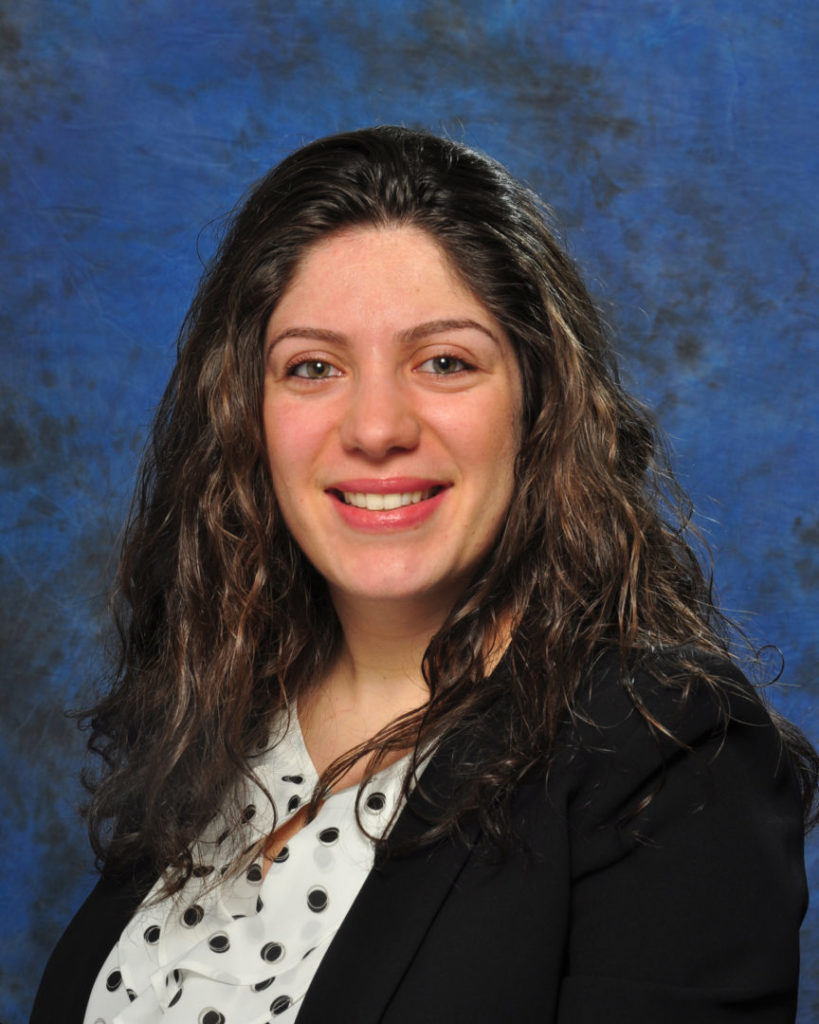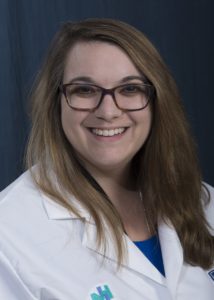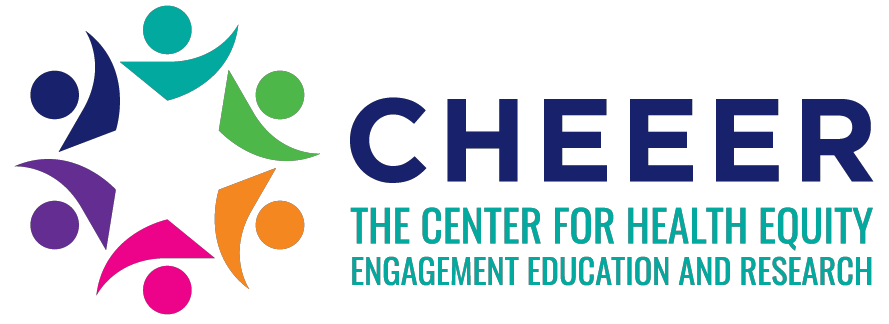Dr. Kirsten Eom, PhD, MPH

Dr. Kirsten Eom is a postdoctoral scholar at the MetroHealth Population Health Research Institute and the MetroHealth Cancer Center. She is a health services researcher whose research examines multilevel factors associated with disparities in cancer prevention, detection, and management among underserved populations. Her previous work focused on how policies that expand access to care and enhance insurance plans address individual-level and social-environmental barriers to timely quality care. Her dissertation examined impacts of the ACA and a safety-net program on alleviating disparities in colorectal cancer screening among low-income non-elderly adults. In addition, from her MPH and professional experience, she has conducted on various types of health services research, including managing a randomized controlled trial, evaluating factors associated with long-term care services use, conducting comparative effectiveness studies in clinical settings, and building predictive and simulation models to inform policymakers. She earned her doctoral degree in Health Services Research and Policy in 2021 from the University of Pittsburgh School of Public Health and her MPH from Brown University School of Medicine in 2013.
Project Title: Using a Community-based Participatory Approach to Reduce Disparities in Cervical Cancer Prevention, Screening, and Diagnosis Among Hispanic Women in Cleveland
Community Partner Organization:

Summary:
The proposed study aims to reduce disparities in cervical cancer (CC) prevention, screening, and diagnosis among Hispanic women in Cleveland, a population group who has a disproportionate burden of CC, by partnering with key community organizations. CC is a unique type of cancer that is essentially preventable by timely primary prevention, which is human papillomavirus (HPV) vaccination, or secondary prevention, which includes HPV and pap smear testing. However, Hispanic women are 40% more likely to be diagnosed with and 30% more likely to die from CC than non-Hispanic women in the U.S. In addition to race, low income, low level of education, having cultural and language barriers, and not having health insurance are found to be highly associated with low rates of CC prevention and screening. However, what is currently known about these factors may not be directly relevant to local contexts as these factors are embedded with other sets of factors (interpersonal-, community-, and systems-level) that are unique in each geographic setting. It is, thus, critical to contextualize these factors associated with CC prevention and screening in distinct geographic and socioeconomic characteristics of Cleveland and to develop tailored strategies to effectively reduce a higher burden of CC among Hispanic women living in Cleveland. To that end, we propose the following three approaches. The first approach is to evaluate impacts of a long-standing local community-based breast cancer screening program for Hispanic women in Cleveland (the BREAST/Amigas program) on general cancer screening services use among program participants. The second approach is to examine disparities in CC prevention, screening, and diagnosis by multilevel determinants of health in Cleveland. For this approach, the study team will review electronic health records of the MetroHealth System to identify significant factors associated with CC prevention, screening, and diagnosis in Cleveland and host several community engagement sessions with Hispanic women living in Cleveland to identify their perceived barriers to efficient CC care and their preferred strategies of CC prevention, screening, and diagnosis. The last approach is to design and conduct a tailored pilot study to address disparities in CC care among Hispanic women in the context of local disparities found from the first two approaches of the proposed study. The proposed study will partner with community organizations to clarify the higher burdens of CC in Hispanic Clevelanders and disseminate the study findings to providers and community members to reduce disparities in cancer prevention.
Dr. Elliane Irani, PhD, RN

Elliane Irani, PhD, RN is an Assistant Professor at the Frances Payne Bolton School of Nursing at Case Western Reserve University. Her program of research focuses on exploring family-centered approaches to manage health and illness. She is particularly interested in examining the psychosocial factors that contribute to the well-being of people with chronic conditions and their family caregivers. Her overall goal is to design and implement dyadic interventions that promote the collaborative management of health and illness, and subsequently improve the experiences and well-being of both members of the dyad. Dr. Irani received a Bachelor of Science degree in nursing in 2010 from the American University of Beirut in Lebanon, and a Master of Bioethics and a PhD in Nursing in 2017 from the University of Pennsylvania. She completed her postdoctoral fellowship at the Frances Payne Bolton School of Nursing at Case Western Reserve University.
Project Title: Social Determinants of Sleep Health and Cardiovascular Risk Among African American Family Caregivers
Community Partner Organizations: Fairhill Partners + McGregor PACE
Summary:
African American family caregivers provide more hours of complex care and report greater financial hardship from caregiving compared to White family caregivers. Family caregivers do not get enough sleep, have poor sleep quality, and are at high risk for cardiovascular disease. Social determinants of health are conditions in the environments where people are born, live, learn, work, and age. Social determinants of health (including discrimination, access to health care, relationships with others, and neighborhood conditions) can affect sleep health and cardiovascular risk. However, very few studies assessed the social determinants of health for family caregivers, specifically African American caregivers. We will collaborate with two community organizations (Fairhill Partners and the McGregor Foundation) that serve African American older adults and their families to complete our research study. Our community partners will help us recruit 100 African American family caregivers to better understand the relationship between social determinants of health, caregiving stress, sleep health, and cardiovascular risk. We will also ask 30 of our participants to wear a watch that tracks sleep activity and complete a daily diary over a 7-day period to better understand how daily caregiving stress affects sleep health. Last, we will invite approximately 25 participants to take part in a qualitative interview to identify resources and risk factors that can be addressed in a multilevel intervention to decrease caregiving stress and improve sleep and cardiovascular health. The findings of our study will help us determine the most important factors to address in an intervention and the best ways to deliver the intervention to African American family caregivers in the community to decrease their stress and improve their sleep and cardiovascular health.
Dr. Erika Kelley, PhD

Erika L. Kelley, PhD, is a clinical psychologist in the departments of OBGYN (division of behavioral medicine) and Urology at University Hospitals, and an assistant professor in the departments of Reproductive Biology and the Urology Institute at CWRU.
She received her undergraduate degrees in Psychology and in Mathematics & Statistics from Miami University and her PhD in clinical psychology from Ohio University. She completed a postdoctoral fellowship in women’s health & aging and PTSD at Stanford University and the VA Palo Alto Healthcare System.
She currently serves as a co-chair for the American Society for Reproductive Medicine’s Mental Health Practitioner Group’s Scientific Development Committee and is a senior consulting editor for the journal, Psychology of Violence. She also enjoys serving as an ad-hoc reviewer for multiple other health journals, and participating in teaching and research activities.
Her areas of research interest focus on 1) the intersection of women’s physical, mental, and sexual health across the lifespan, with a particular emphasis on the role of trauma; and 2) the identification and reduction of barriers to health care in transgender and gender-diverse individuals.
In her free time, she enjoys birding, nature photography, and running, when not laughing with, and chasing around, her 1 and 3 year old children.
Project Title: Social Media as A Decision Aid To Improve Cancer Screening Among Transgender And Gender Diverse People
Community Partner Organization:
Summary:
Research indicates that transgender and gender diverse (TGGD) individuals face barriers to health care, including across the cancer care continuum. Studies suggests that TGGD people have lower cancer screening rates and higher rates of cancer related risk factors compared to cisgender people. Documented barriers to health care include lack of provider-patient discussions on cancer, lack of guidelines for cancer screening specific to TGGD individuals, and experiences of stigma and discrimination. Shared decision making is a safe environment allowing for a patient-and-provider dialogue and can promote TGGD people’s autonomy in their cancer care decisions. Moreover, TGGD individuals often are advocates for their own healthcare and seek health information via online resources, such as social media. The purpose of this exploratory study is to examine the potential for social media as a shared decision aid to increase cancer screening among TGGD individuals. This study is a collaboration between clinicians, researchers, and community members at University Hospitals, Baldwin Wallace College, and the LGBT Community Center of Greater Cleveland. The study will be conducted in two phases. Phase 1 will be a series of in depth interviews designed to identify the most common social media outlets used by TGGD individuals, attitudes and knowledge regarding cancer risk, and the role of social media in their cancer screening decisions and intentions. A total of n = 25 transwomen of color, transmen, gender non-binary, Caucasian transwomen, and participants engaged in cancer care will be recruited for these interviews. Interviews will also be conducted with n = 9 to 12 providers in areas of primary care and oncology to identify provider perspectives of the potential for social media as a shared decision aid in cancer care for TGGD individuals. Informed by these interviews, we will conduct a mixed-mode cross sectional survey among n = 100 TGGD individuals to examine interest in, and multi-level influences on, social media as a decision aid and support for cancer screening.
Dr. Maeve MacMurdo, MBChB

Dr. Maeve Georgia MacMurdo is an occupational and environmental lung disease specialist, practicing at the Cleveland Clinic. Her research focuses on using spatial epidemiology techniques to better understand the health impacts of occupational exposure to air pollution, and the impact of neighborhood level disparities in air pollution and other inhaled exposures on health.
She completed her medical training at the University of Otago in New Zealand, before moving to the United States. There she completed her residency in Internal Medicine, followed by a fellowship in Pulmonary and Critical Care medicine at the Cleveland Clinic. She has also completed a Masters in Public Health from Case Western Reserve University.
Project Title: Local Level Air Pollution Exposure and Respiratory Outcomes among Migrant Agricultural Workers
Community Partner Organization:

Summary:
Researchers have estimated that air pollution may be responsible for as many as 8.8 million deaths across the world each year.
Farm workers may experience disproportionately high exposure to air pollution, both due to their outdoor nature of their work, and farming specific exposures including pesticides and particulate matter. Within the United States, only California regulates farm worker exposure to unhealthy air. Poor air quality remains a problem in many other states, and is predicted to worsen due to climate change. Many farmworkers work and live in rural areas, where access to traditional sources of air monitoring is limited. As few as 18% of counties in the United States have enough air monitoring data to estimate annual fine particulate matter (PM2.5) exposure. In this study, we utilize NASA Satellite data to estimate differences in exposure to PM2.5 at a 1km level, in combination with local knowledge mapping- a paper survey-based technique which allows participants to draw where they live and work.
By linking air pollution exposure with symptoms reported by workers, we aim to identify the amount of air pollution farm workers experience, and the impact of this exposure on their health. Answering these questions can help to guide workplace health and safety policy, and help patients and their doctors understand how best to decrease exposure to air pollution.
Dr. Brittany Myers, PhD

Dr. Brittany Myers is a pediatric psychologist at MetroHealth Medical Center and Assistant Professor of Psychiatry at the Case Western Reserve University School of Medicine. She specializes in working with adolescents to address depression, anxiety, trauma, and suicidal ideation. Dr. Myers is a bilingual clinician who is passionate about serving and supporting Hispanic and Latinx youth and their families. Her research focuses on improving health disparities in the Hispanic/Latinx community, and on suicide prevention and depression treatment for diverse youth in pediatric primary care.
Project Title: Investigating Family-Centered Treatment Approaches to Managing Depression in Hispanic Youth within Integrated Primary Care
Community Partner Organization:

Summary:
Studies have suggested that addressing parental mental health can help to improve symptoms of depression in teens. Rates of depression in teens are increasing and are particularly high for Hispanic teens. Hispanic families are exposed to higher numbers of stressors, placing both kids and parents at higher risk for mental health concerns, but Hispanic patients also have less access to mental health services.
When mental health services are included in pediatric visits, families have an easier time connecting to needed support for kids’ mental health, and this may also be a good place to identify parents who may need mental health support. This study plans to screen kids for depression when they go to the pediatrician within MetroHealth’s Pediatric Hispanic Clinic. Kids who show signs of depression will meet with a psychologist as usual, but in this study, their parents will also answer questions about their own depression, anxiety, symptoms of trauma, and parenting stress. Parents will then either be given a list of referrals to bilingual mental health services or they will be connected directly to a community partner agency who will provide therapy to the parents in either English or Spanish via telehealth. MetroHealth researchers will call families after three months and again after six months to repeat the same questionnaires to measure both parents’ and kids’ mental health symptoms. We believe that when parents receive their own mental health support, both kids’ and parents’ mental health symptoms will improve to a greater degree than when parents are only given a list of referrals.


